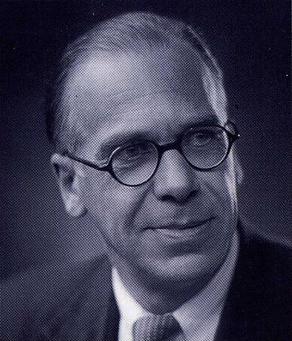Related Research Articles
An oratorio is a musical composition with dramatic or narrative text for choir, soloists and orchestra or other ensemble.

Robert Eugene Ward was an American composer who is best remembered for his opera The Crucible (1961) after the 1953 play of the same name by Arthur Miller. He was awarded the Pulitzer Prize for Music for that opera in 1962.

William Grant Still Jr. was an American composer of nearly two hundred works, including five symphonies, four ballets, nine operas, over thirty choral works, art songs, chamber music, and solo works. Born in Mississippi and raised in Little Rock, Arkansas, Still attended Wilberforce University and Oberlin Conservatory of Music as a student of George Whitefield Chadwick and then Edgard Varèse. Because of his close association and collaboration with prominent African-American literary and cultural figures, Still is considered to be part of the Harlem Renaissance.

William Elden Bolcom is an American composer and pianist. He has received the Pulitzer Prize, the National Medal of Arts, a Grammy Award, the Detroit Music Award and was named 2007 Composer of the Year by Musical America. He taught composition at the University of Michigan from 1973 until 2008. He is married to mezzo-soprano Joan Morris.

William Alwyn, was an English composer, conductor, and music teacher.

Gottfried von Einem was an Austrian composer. He is known chiefly for his operas influenced by the music of Stravinsky and Prokofiev, as well as by jazz. He also composed pieces for piano, violin and organ.
Ulysses Simpson Kay was an American composer. His music is mostly neoclassical in style.

Hugo David Weisgall was an American composer and conductor, known chiefly for his opera and vocal music compositions.
Jack Hamilton Beeson was an American composer. He was known particularly for his operas, the best known of which are Lizzie Borden, Hello Out There!, and The Sweet Bye and Bye.
Thomas Pasatieri is an American opera composer.

Kenilworth, A Masque of the Days of Queen Elizabeth, is a cantata with music by Arthur Sullivan and words by Henry Fothergill Chorley that premiered at the Birmingham Festival on 8 September 1864.

A Bayou Legend is an American opera composed by William Grant Still, with a libretto by his wife and frequent collaborator, Verna Arvey.
Family Opera Initiative (FOI) is an American opera company based in New York City that commissions, develops, and premieres original works for cross-generational audiences. It was founded in 1995 by Grethe Barrett Holby, originally as part of American Opera Projects. Its mission was and remains to create new repertory for family audiences, to bring the experience of opera to a diverse audience, and to engage the community in the process and performance of their works.
William Brown was an American operatic tenor, a founding member of the Center for Black Music Repertory Ensemble and a Distinguished Professor of Voice at the University of North Florida.
As an old form of art in a new country, opera came to Canada relatively late. Although the first composition can be traced back to the seventeenth century it was not until 150 years later that Canadian opera caught up. Canadian opera became especially fashionable on Canada's 1967 centennial year. These celebrations set off an interest in operas among Canadian composers that was never seen before. This interest in opera, among composers and audience alike, is noticeable until today. However, most Canadian operatic works are not known internationally since many of them specifically concern Canadian themes and are small in scale.

Semiramide riconosciuta is a dramma per musica in two acts by Giacomo Meyerbeer. It is the composer's fifth opera and the second that he composed for a theatre in Italy. The text is an adaptation of a pre-existing libretto by Pietro Metastasio that had already been set to music by numerous other composers. The opera had its premiere at the Teatro Regio in Turin on 3 February 1819.

Highway 1, USA is an American opera in one act with music by William Grant Still and libretto by Verna Arvey. Originally composed during the 1940s with the title A Southern Interlude, the opera received its premiere under its revised and definitive title in 1963.
References
- ↑ Still, Judith Anne; Dabrishus, Michael J.; Quin, Carolyn L. (1996). William Grant Still: A Bio-bibliography, p. 104. Greenwood Publishing Group. ISBN 0313252556
- ↑ Bims, Hamilton (February 1973). "An All-Black Opera Raises Its Voice", pp. 55–60. Ebony
- ↑ Columbia University Libraries. Program: The Juggler of Our Lady. Retrieved 28 February 2016.